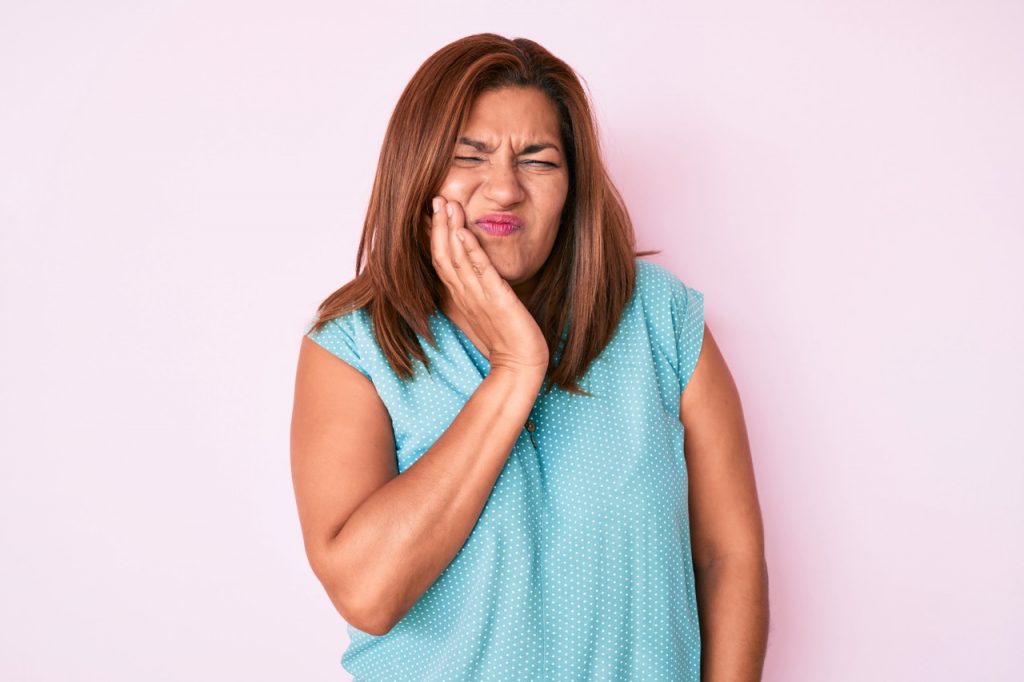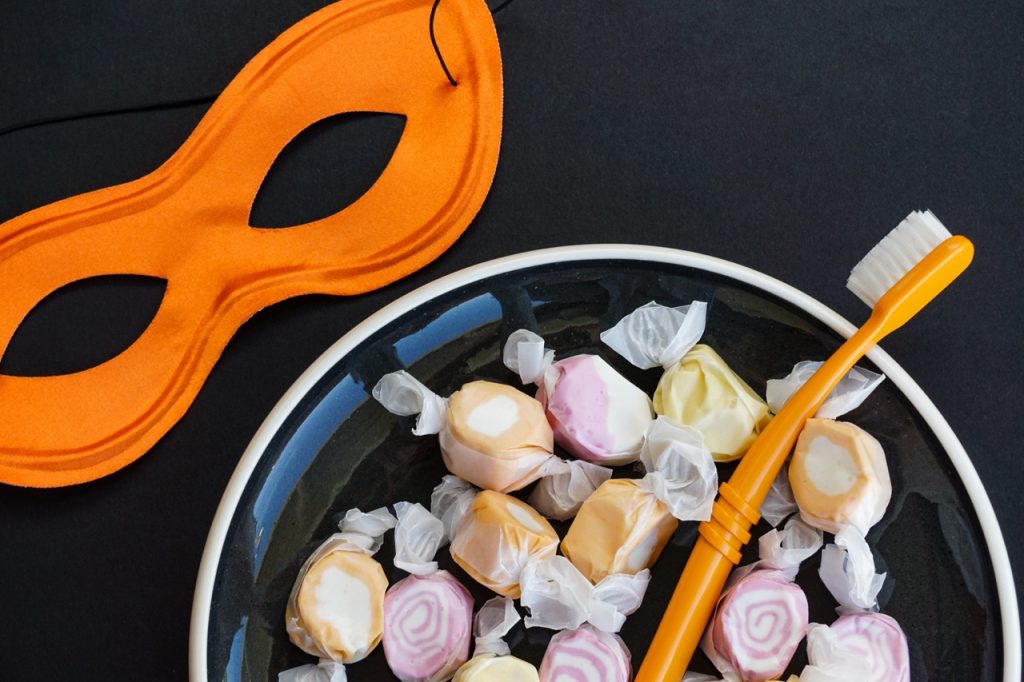Resource Library
Start Reading

What’s scarier than ghosts and goblins? The effect of Halloween candy on teeth, of course.
Or is it? Just in time for trick-or-treating, check out which Halloween candy and teeth myths are fact and which are fiction for the most boo-tiful smile ever.
When you consider that candy-related dental issues have affected 35% of Americans, it’s essential to know how candy can impact our oral health, especially when indulging in Halloween treats.

Candy is full of sugar, the primary culprit behind tooth decay. When sugary substances linger on teeth, they fuel cavity-causing bacteria, leading to the formation of acid that erodes enamel over time, leading to cavities and gum disease. This process can occur rapidly with frequent consumption of high-sugar snacks.
Sticky candies like caramels and gummy bears pose the greatest risk because they can cling to teeth, providing prolonged sugar exposure that increases the likelihood of cavities. These candies can be particularly troublesome because they are difficult to remove with regular brushing alone, allowing sugar to sit on tooth surfaces for an extended period.
Surprisingly, sour candies can be even more detrimental to dental health. They typically contain high amounts of sugar as well as acids that can further erode tooth enamel. The combination of sugar and acid creates a double threat, making sour candies particularly harmful if consumed in excess.
But there’s better news for chocolate lovers out there: chocolate is better than other candies. Along with its antioxidant properties, it melts and washes away faster than other candies’ residue, leaving teeth cleaner.
You may experience discomfort in your teeth after eating candy for several reasons.
High sugar content creates an environment conducive to bacterial growth, leading to inflammation and sensitivity in the gums and surrounding tissues. Over time, the acids produced by these bacteria can wear down the enamel, exposing the dentin, the material underneath the enamel. Dentin is sensitive to hot, acidic, cold, or sugary foods.
Another reason for this pain could stem from the type of candy consumed. For instance, hard candies can lead to cracked teeth if bitten down too forcefully, while sticky or chewy candies may get lodged between teeth and gums, causing irritation and discomfort.
 Don’t be scared. The short answer is no.
Don’t be scared. The short answer is no.
As long as you follow your regular oral hygiene procedures, you’ll be just fine. Remember to:
Additionally, the frequency of candy consumption plays a significant role in dental health. But it may be the opposite of what you’re thinking:
So, one night of candy isn’t necessarily a nightmare for your oral health. However, it’s crucial to know that candy isn’t the only source of sugar that can cause cavities. Our diets can have a scary impact on our dental health that we aren’t even aware of—on Halloween and every other night of the year.
Maintaining your dental-care routine, opting for nonsugar items when you can, and having a balanced diet that includes fruits, vegetables, protein sources, calcium-rich foods, and whole grains will go a long way toward protecting your teeth throughout the year.
 Regardless of whether it’s Halloween or any other day of the year, it’s a treat for us at PDFP to keep your smile healthy. You’ll find over 35 doctors specializing in all areas of dental medicine, including general dentistry, oral medicine, orthodontics, and prosthodontics. We bring you the latest techniques and scientific advances in dentistry, along with the gold standard of patient-focused care.
Regardless of whether it’s Halloween or any other day of the year, it’s a treat for us at PDFP to keep your smile healthy. You’ll find over 35 doctors specializing in all areas of dental medicine, including general dentistry, oral medicine, orthodontics, and prosthodontics. We bring you the latest techniques and scientific advances in dentistry, along with the gold standard of patient-focused care.
So don’t be frightened of Halloween candy and dental care. Click here or call 215-898-PDFP (7337) to make an appointment today.